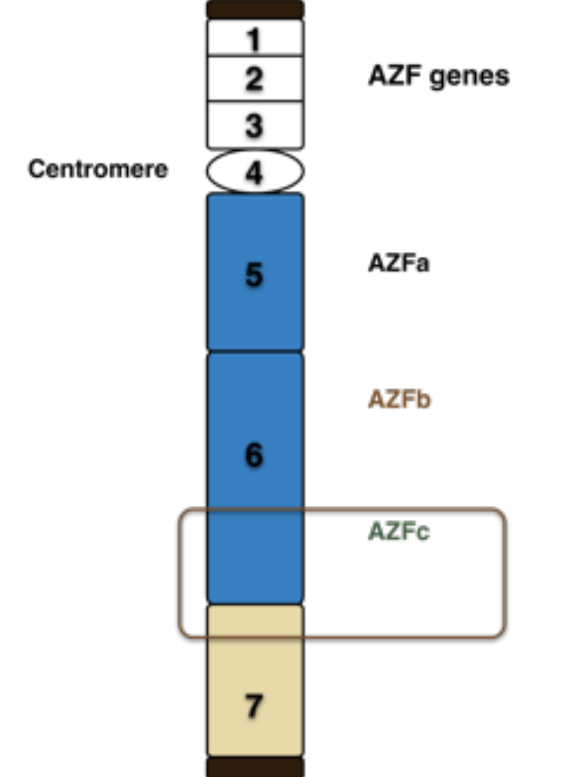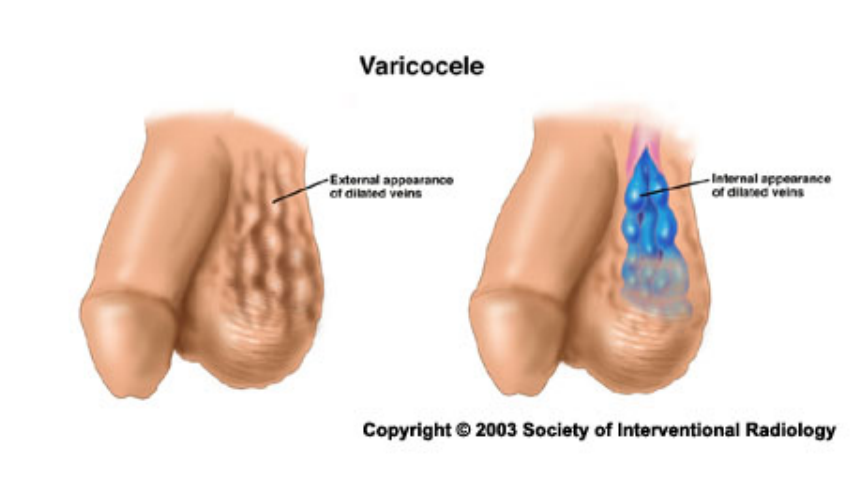Causes of Male Factor Infertility
There are several causes of male factor infertility: genetic, hormonal, varicocele, infection, anatomical malformations, chemical insult, idiopathic oligospermia accounts for 30%. Below we are going to explore several factors:
Genetic Factors
- Chromosomal abnormality can be found in about 15% of azoospermic men and 6% of
men with severe oligospermia. - Klinefelter syndrome (47XXY)
– Nondisjunction in meiosis 1 or 2 - Congenital absence of the vas deferens
- Kallman’s syndrome-genetic condition that results in hypogonadotropic hypogonadism
(and inability to smell)

Y Chromosome Microdeletion
- Missing gene(s) in the long arm of the Y chromosome that are associated with
spermatogenesis - May not have any symptoms but reduced fertility
- Prevalence about 7%

Factors Affecting Spermatogenesis
- Stress
- Age
- Toxins (lead, plastics, tobacco, ETOH, cannabis)
- Exposure to radiation or chemo
- Prolactinoma
- Cryptorchidism (absence of one or both testes from the scrotum) usually undescended and will descend by first year of life.
- Infections:
– Mumps, chickenpox, STDs
– Can cause orchitis (testicle infection)
– Prostatitis - Heat- hot tubs, sauna, long distance running, biking, truck drivers, tight underwear
Varicocele
- 35% of subfertile men
- Lower sperm count and quality
- Lower sperm function
- Elevated oxidative stress-elevated sperm DNA damage
*Miyaoka & Esteves, Adv Urol 2012; Agarwal, Esteves, Hamada; Nature Urol Rev 2013

Varicocele Repair
- Varicocelectomy
– Done under microscopic guidance might improve outcome
– Wait around 6 months to resume treatment
– 60-70% show improvement
– 40-50% pregnancy rate
ASRM Practice Guideline- Varicocele Tx
- Indications for varicocele repair
– Infertile couples
– Normal female or treatable female infertility
– Abnormal S/A or sperm function test - Some studies have shown that treating the varicocele prior to ICSI can increase # of fertile eggs, live birth % and miscarriage rate (Esteves, SC et al, journal of urology vol 184: 1442-6, 2010)
- Probability of semen improvement: 50-70%
Male Obesity
- Increases risk of hypogonadotropic/hypogonadism (leptin alters GnRH)
- Is risk factor for subfertility
- Negative correlation between elevated BMI, Total and Free T
- Oligo- and Asthenospermia increase with increasing BMI
- Decreases sperm, embryo quality and placental development
- In animal study, rate of embryo implantation and fetal development decreased in mice with obese fathers by up to 15%*.
*Binder, et al. 2012. Abstract presented at ESA-SRB
